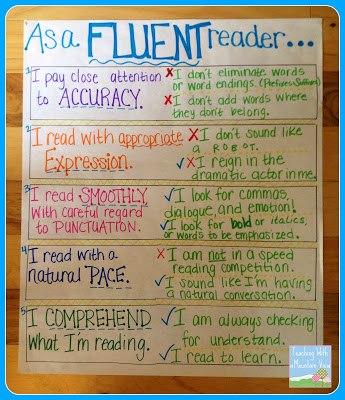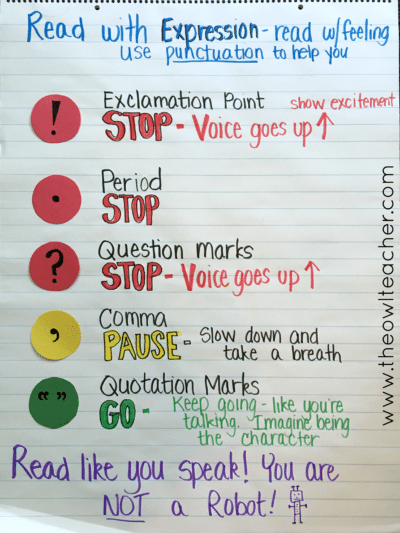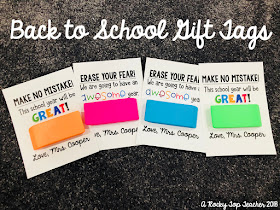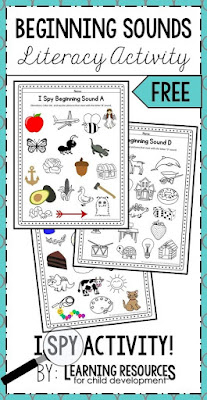Watch this video and learn more about how SUPER easy it is to create and use QR Codes in your classroom!
Visite o nosso Grupo para " PROFESSORES DE INGLÊS". Várias apostilas e novidades na área de LEM - INGLÊS. https://www.facebook.com/groups/concursoprofessoringles/
Páginas
▼
23/02/2019
21/02/2019
Anchor Charts
1. As a Fluent Reader …

SOURCE: Teaching with a Mountain View
This colorful anchor chart has all the information your students need to read like pros.
2. Read With Expression
SOURCE: The Owl Teacher
Read like you speak—you are not a robot!
(...)
19/02/2019
10/02/2019
09/02/2019
English Dialogues for ESL Students
English Dialogues for ESL Students
| Bargain in English How to Negotiate Job Interviews in English Get advice to help you succeed in interviews Talk About Travel in English A conversation about a trip | Talk About Kites Discuss interests in English Discuss Gift Giving in English Learn about cultural differences Talk About Chinese Medicine |
| Visiting a Primary School Talk about schools in English A New Job Using English Learn about English on the job Planning Summer Vacation Talk about the future in English Discussing a Trip Talk about travel in English Talk About Hiking Talk about interests in English Anniversary Talk about events in English Talk About Favorite Places Discuss preferences in English Talk About Ultimate Frisbee Discuss sports in English Happy Holidays! Talk about customs in English | Talk About English Karaoke Discuss fun in English Discuss the Beijing Olympics Talk about the future in English Taking Taxis Talk about getting around Surfing the Internet Talk about interests in English Talking About a Tennis Lesson Discuss sports in English Photos in the Park Talk about interests in English Silicon Valley? Talk about a city Apartment Search Talk about daily life in English See more at: http://www.teacherjoe.us/NYBJ.html |
33 ways to speak better English without taking classes
By speaking better English, people all over the world can hear our voice.
Here are 33 ways to speak better English:
1. Record yourself speaking English. Listening to yourself can be strange at first but you get used to it. Listen to a recording of a fluent English speaker (a short audio file) and then record yourself repeating what they said. Compare the difference and try again. Humans are natural mimics so you will find yourself getting better and better. Soundcloud is an excellent tool for voice recording as you or your teacher can make notes about your errors.
2. Read aloud, especially dialogue. Reading aloud is not the same as speaking naturally. However, it is very useful for exercising the vocal muscles. Practise for 5 or 10 minutes a day and you will begin to notice which sounds are difficult for you to produce. Find transcripts of natural dialogues, such as these here, and practise acting them with a friend, you will also learn common phrases which we use when speaking.
3. Sing along to English songs while you’re driving or in the shower. The lyrics to pop songs are often conversational so you can learn lots of common expressions by listening to them. Humans are also able to remember words when used together with music which is why it is difficult to remember poems but easy to remember the words to songs. Here are some songs to get started with.
4. Watch short video clips and pause and repeat what you hear. YouTube is an amazing resource for language learners and you probably already have your favourite clips. My advice is to watch short clips and really study them. With longer videos, you may find your attention wanders. The key to improving by watching videos is to really listen carefully and use the pause button to focus on sounds and words. Many YouTube videos now have captions.
(...)
05/02/2019
Seqüência didática - What are you doing to change the world?
Compatilhando atividade - Sequência didática -
Tema: What are you doing to change the world?
1- Puzzle Music
Em grupos, os estudantes recebema letra da música "What a wonderful world" em tiras embaralhadas. Ao ouvir a música, eles devem colocá-la na ordem. A depender do nível da turma, pode ser necessário repetir a música muitas vezes, então essa atividade deve ser feita em uma aula.
2- Correção: passar a música novamente, dessa vez parando verso por verso, para que os estudantes confirmem se ordenam a letra corretamente. Ao mesmo tempo, verificar se compreenderam o que a música fala.
3- entregar aos grupos a folha de interpretação do texto. Essa atividade deve levar o grupo a refletir sobre o que a canção fala e o que é vivido no mundo. Questionar se a música passa uma mensagem utópica ou de esperança.
4- Montar um painel que responda a pergunta tema. Se o Present Continuous ainda não foi trabalhado, isso pode ser feito antes dessa etapa.
Gleima Vanin.
Ensino de inglês através de sequências didáticas - Estrangeirismo no dia-a-dia
Seqüência didática - Estrangeirismo no dia-a-dia
Objetivos
- Identificar o uso de expressões estrangeiras usadas no cotidiano.
- Conscientizar os alunos do que eles já sabem.
- Identificar o uso de expressões estrangeiras usadas no cotidiano.
- Conscientizar os alunos do que eles já sabem.
Conteúdos
- Estrangeirismos.
- Caso genitivo (genitive case ou -s).
- Estrangeirismos.
- Caso genitivo (genitive case ou -s).
Ano
6º ano.
6º ano.
Tempo estimado
Cinco aulas.
Cinco aulas.
Material necessário
Cartolina e pincéis atômicos.
Cartolina e pincéis atômicos.
Desenvolvimento
1ª Etapa
Verifique as expressões que os alunos conhecem em inglês. Pergunte se eles vão ao shopping. O que significa essa palavra? E, no computador, que palavras surgem? Peça que os alunos façam uma lista de estrangeirismos do dia-a-dia. Escreva no quadro os termos e pronuncie-os com a classe.
Verifique as expressões que os alunos conhecem em inglês. Pergunte se eles vão ao shopping. O que significa essa palavra? E, no computador, que palavras surgem? Peça que os alunos façam uma lista de estrangeirismos do dia-a-dia. Escreva no quadro os termos e pronuncie-os com a classe.
SEQUÊNCIA DIDÁTICA PARA ENSINO DE INGLÊS
SEQUÊNCIA DIDÁTICA
I – Conteúdos
Gênero discursivo:
ü Rotina diária;
ü Leitura e produção oral e escrita;
ü Produção escrita de slide no aplicativo PowerPoint;
ü Ensino de estratégias de leitura.
Características e marcas linguísticas do gênero:
Presente simples, Advérbios de frequência, Usos dos verbos auxiliares Do e Does em perguntas e Pronomes interrogativos.
II – AULAS PREVISTAS
ü 10 aulas
Sounds
Sounds
https://vk.com/doc324438865_487469868?hash=8ee2dba76febe85104&dl=5bd25b14f33f15a2dd
https://vk.com/doc324438865_487469965?hash=1ac2276bfbab50f559&dl=5880d679ed68b594f5
https://vk.com/doc324438865_487470046?hash=9f0b83bcef71e874e5&dl=98d61b283a35c98eac
01/02/2019
Back to School Tips and Ideas…lots of them!
It’s that time of year again. You know, when Target starts loading their shelves with notebooks and crayons. I hope you have enjoyed your summer and find yourself refreshed and re-energized for your new set of kids who you will undoubtedly meet soon!
I thought I would make your planning a little easier for you by sharing some of my favorite back to school tips and ideas.
I know you have a ton of things to do to prepare, so I thought I’d keep it short and sweet with a fun theme: something old, something, new, something borrowed, and something true…and all ideas you can use for back to school!
I can’t remember where I heard this, it wasn’t from my own brain, but I always heeded this advice. Students want to know that there is room for them in your classroom.
It’s ok if you don’t have every bulletin board perfectly decorated.
Bright happy colors make students feel welcome, even if the boards are blank.
Happy Back to School!
See more at:
http://www.morethanaworksheet.com/2015/07/31/back-to-school-tips-and-ideaslots-of-them/
Class Routines–a list of 40 things to consider
As you prepare for a new school year, or even for your very first class, you will probably find lots of advice telling you how important routines are. Add this post to the list! In my opinion, class routines are THE most important part of teaching because they help your class run smoothly. And if your class doesn’t run smoothly, it doesn’t matter how much time you’ve spent planning lessons or how cute your bulletin boards are.
You must teach routines explicitly, and to do that you must know how you want things to run.
Students, unfortunately (or maybe fortunately?), are not mind readers, so it is important that you teach students the routines explicitly. Before you teach the routines to students, it is important that you have put thought into how you want things to run. You can get tons of ideas online and from fellow teachers, but ultimately when the bell rings, you are in charge of your class, and you will want things to run yourway. Be sure to spend time thinking through the routines and determining how you want each to go.
What routines and policies do I teach?
(...)
First Day of School Tips for New Teachers
The first day of school will be here before you know it. The night before my very first first day of school as a teacher I could not sleep because I was so nervous and excited. Even on my eighth first day as a teacher, I still had butterflies! I thought I would share with you some tips that worked for me. If you are a first year teacher, or if you’ve been around the block (hallway?) a time or two, I hope you find these helpful.
1.Greet your students at the door. Stand at your door with a smile. Greet them, welcome them, learn their names. Help them know that when they walk into your classroom, they will be greeted with a friendly face and kind words. This simple gesture on the first day of school goes a long way!
2. Assign seats. I know that some may disagree on this one, but please, take it from your shy, introverted student (me!) that one of the most nerve-wracking, anxiety-inducing, and terrifying experiences in the world is walking into a room and having the pressure of choosing a seat. It takes the pressure off if there is an assigned seat and gives a nervous child a task to focus on.
3. Plan something for students to do when they arrive. It doesn’t have to be big or life-changing, but your students are nervous, too, and they need somewhere to channel their nervous energy. Here are some ideas:
- Give them a blank sheet of paper, and have them draw a self portrait.
- Have them write a quick introduction letter to you.
- Have them write a letter to themselves about how they feel on the first day. (Save the letters and give them back to them on the last day!)
- Have them create a name tag.
(...)
Bem-vindo querido Fevereiro.
Espero que neste mês - do meu aniversário, ele venha com saúde , paz... muitas surpresas boas... que possamos realizar nossos sonhos e projetos... que possamos todos(as) ser cada dia mais saudável e feliz.
Aniversariantes do mês Thayná França , Gustavo França , Arthur França ...de tanta gente querida... que o Senhor nos abençoe. Amém .
Fevereiro..és o segundo capítulo de um livro inteiro.
Que sejas doce, que sejas leve, que sejas generoso.
Traz contigo ânimo para os dias mais difíceis, força para aguentar a caminhada, esperança para encontrar novos caminhos.
Que os teus bons momentos se prolonguem, que os maus sejam breves.
Traz energias renovadas, traz contigo preces atendidas, traz contigo doçura e alento para o coração. Traz dias de sol, dias de amor.
Deixa para trás todos os restos, todas as palavras mal-ditas, todas as histórias que não tiveram finais felizes.























